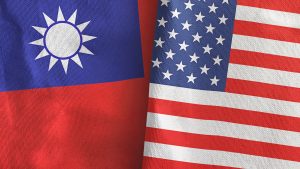Global democracy is in retreat. The United States is now a “backsliding democracy” for the first time according to the 2021 Global State of Democracy Report. At the same time, China uses the word “democracy” to describe its own governance, while meaning something completely different. As democratic practices regress, like-minded countries should combat this by expanding partnerships to protect and improve democratic institutions and civic spaces. In this context, Taiwan, a thriving democracy in the Indo-Pacific, represents both an exemplar as well as a potential partner. Taiwan provides valuable lessons in how to address challenges facing modern democracies while under constant threat.
A conventional narrative has solidified around the idea that the COVID-19 pandemic has exposed flaws of democracy in coping with the public health crisis while China’s quick economic rebound and pandemic success, albeit through strict lockdown measures, may serve as a showcase for its model of governance. However, Taiwan stands in contradiction to this narrative and its own success is well documented. It has leveraged contact tracing, apps, “civic hackers,” and “radical transparency” to effectively combat misinformation and contain the pandemic spread absent lockdowns while staying true to its core democratic values. This is exemplified by its robust civil society, which built most of the pandemic-related information systems as opposed to the government. The model adds a citizen-centric dimension to digital governance, which is otherwise dominated by authorities, and forms an integral part of Taiwan’s digital democracy.
In 2021, Taiwan was ranked the second freest place in Asia, according to Freedom House. It is a vibrant multi-party democracy, with peaceful transitions of power between ruling and opposition parties for the past two decades. Not only that, but Taiwan is a leader in public civic participation through programs such as Citizen Congress Watch, a fourth-generation society legislative oversight mechanism. The organization gathers representative opinions, publicizes oversight outcomes, and puts forward suggestions to the legislature to effect changes the public want to see.
Taiwan is emerging as an international leader in democracy having recently hosted the 2021 Open Parliament Forum, an international gathering of parliamentarians and experts. The forum is focused on protecting liberties and human rights in the face of rising threats of authoritarianism. Through its involvement, albeit as a nonmember, Taiwan demonstrates its commitment to safeguarding civil liberties through transparency and openness of government, reinforcing the role of citizens and media in providing checks and balances to public policies.
Taiwan’s hard-earned democracy, having transitioned from authoritarianism to a vibrant democratic system, is constantly under siege from Beijing’s intimidation and coercion, which considers Taiwan part of its territory. But in many ways, these challenges make Taiwan stronger by giving it a foil. In a recent Foreign Affairs essay, Taiwan‘s President Tsai Ing-wen makes the strong case that the island’s resiliency is critical to regional peace and the future of democracy. The United States and its allies agree: they are coordinating their Taiwan policy to safeguard the rule-based international order.
Indeed, from securing a free and open Indo-Pacific to a potential digital trade deal in Asia to counter illiberal practices, the Biden administration is pushing an agenda of value-based alliances and partnerships to balance China’s rising influence. Those outside of the region have taken note as well. Lithuania, for example, has deepened ties with Taiwan despite retaliation from Beijing, informed by its own long history of dealing with neighboring great powers. The boost of democratic partnerships is timely as advanced democracies grow vigilant in defending democratic values and the rule of law.
Democracy, even in its fragile state, is what people yearn for. Beijing’s attempt to reframe what a democracy is validates that. To counter economic coercion, consolidating formal and informal trade and investment ties among democracies is a concrete way to promote democratic norms and secure freedoms. But more needs to be done. The future of democracy hinges on inclusive partnerships among like-minded democracies and stakeholders. With its advanced digital governance, commitment to inclusive and transparent government, and resilience in the face of aggression, Taiwan provides valuable lessons on tackling the challenges that democracies face today.

































